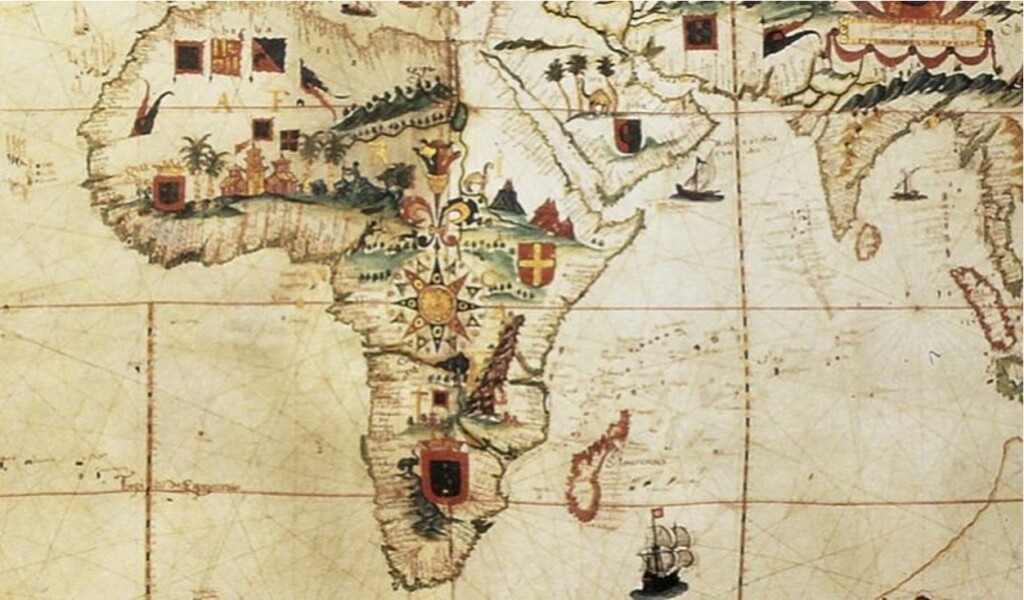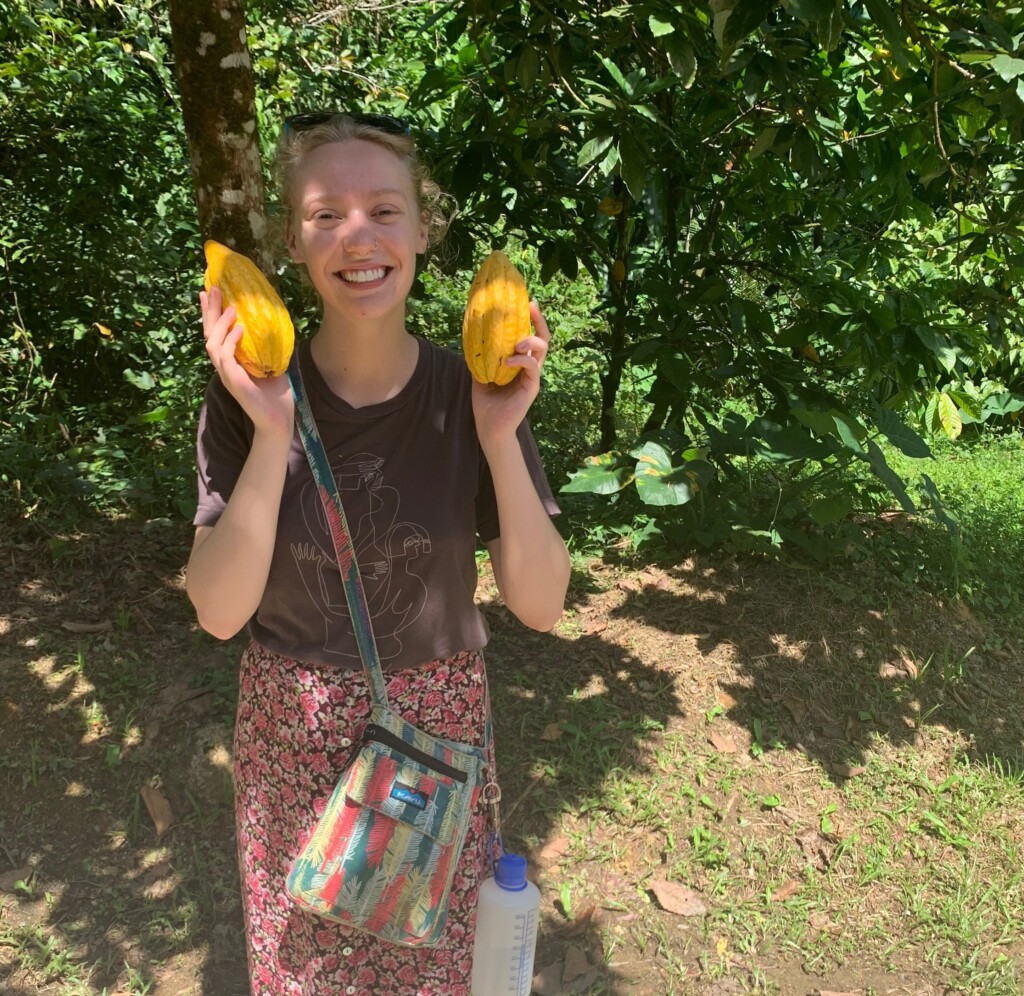2020 Global Studies Capstones
Welcome to the Spring 2020 Global Studies Capstones.
A. R. Alcantar
A Study of National Identity & European Integration
This paper uses realist, poststructuralist, and constructivist lenses to study the interaction between national identity and European political socioeconomic integration. I argue that a state’s sense of national identity affects that state’s level of involvement in the European Union. This study examines the following states: France, Italy, the United Kingdom, Germany, Denmark, Finland, Norway, and Sweden. The focus of this paper is cross examining each state’s involvement in the EU with its perception of Europe and its own developed national identity. The current political issues of Brexit bring attention to the fact that public opinion plays a big whole in international politics. It is my hope to bring some level of understanding of how exactly these relationships can be measured and predicted.
Sydney Caplinger
I would like to extend my deepest gratitude to my advisors; Professor Michael Zbaraschuk, Professor Jordan Levy, and Professor Peter Grosvenor. I also want to say thank you to all of the staff and faculty working in the Global Studies Department at PLU for fostering my love for a globally informed education.
Critiquing Neoliberalism: Placing NAFTA and Its Attempt to Reform Under a Microscope
Using radical international relations theory, this capstone research project looks at neoliberalism and its hegemonic implementation through free trade agreements. Specifically, how the trilateral North American Free Trade Agreement (NAFTA) between Mexico, Canada, and the United States has resulted in the mass exploitation of workers, small producers, and the environment. This piece explores how NAFTA, enacted in 1994 during the Clinton administration, and other neoliberal institutions and organizations have succeeded in transforming the economy and in turn society into a capitalistic nightmare for anyone who is not a corporate or political elite. This will be done by delving into the roots of the neoliberal agenda beginning in the post-World War II period where there was a global initiative to create a world of complete economic interdependence. One will see that the opening of markets through neoliberal policies, such as free trade agreements, has only perpetuated broken promises and benefits to transnational corporations. However, if NAFTA and other free trade agreements are critiqued and learned from then other possible market mentalities could materialize that would be more equitable for society holistically.
Kylee Dickinson
These past four years have been nothing short of incredible, I have quite a few people to thank for that. First and foremost, thank you to my family and close friends for the spectacular, unwavering support you’ve given me. Also, a huge thank you to the Wang Center for encouraging me to study away and making my dreams of learning abroad a reality, three times! As for the phenomenal faculty, I would like to thank Professor Christian Gerzso, Dr. Michael Artime, Priscilla St. Clair, and Rebecca Wilkin for their mentorship and commitment to my studies throughout my time at PLU. Special recognition must be given to the phenomenal Beth Kraig, who played a large advisory role in the cultivation of this capstone project, and in doing so has helped me illuminate my life’s next pursuit. Thank you all, words cannot describe my gratitude. The Global Studies program has given me the tools to live impactfully, inquisitively, and compassionately. It has truly sparked an interest in International Affairs within me that will burn brightly for years to come.
International Law or International Finger-Wagging? Reconceptualizing International Law: a Case Study of Israel
Dispersed throughout the land between the Jordan River and the Mediterranean Sea lies a multitude of failed, ignored and unimpactful peace plans, international summits, United Nations resolutions, conventions, and International Court of Justice decisions. All of the aforementioned attempts at international law were meant to foster justice in the long-contested area that is inhabited by both Israel and Palestine, but Israel’s indifference and disregard for international law have made them unsuccessful. This study analyzes the factors that have perpetuated Israeli indifference namely linguistic euphemisms that hide injustices in the Occupied Palestinian Territories (OPT), long-standing U.S. allyship, a tenuous history with international law, asymmetrical power relations between it and Palestine, and a strongly held creed in the effectiveness of force over diplomatic intervention. Utilizing Israel as a case study highlights how some nations – namely powerful or well-allied ones – can persistently violate international law with a mere admonishing “finger wag” from the international community as a response. By assessing Israel’s relationship with international law, the entire international legal system can be better understood and reconceptualized: international litigation is a tool in the pocket of the international community capable of advancing meaningful social change but not in the manner of “victory” typically associated with law.

Fatou Dieng
There are many people I would like to extend my thanks, gratitude, and appreciation for the help and support they have provided throughout the semester whilst I have been working on this.
Colonialism and Environmental Degradation: Analyzing the Environmental Legacy of French Colonialism in Senegal and its Impact on Climate Change.
Senegal is a country in West Africa that is currently facing harsh climate change impacts: reoccurring natural disasters, amplified dry seasons, intensified precipitations, coastal erosion, soil degradation, and overall biodiversity loss. To understand why Senegal is and will be uniquely impacted by climate change, we explore the correlation between colonialism and environmental degradation. The purpose of this research paper is to analyze the overall environmental legacy of French colonization in Senegal. The main research questions we aim to investigate looks at what the environmental legacies of colonialism were for Senegal and how they are related to climate change. This research offers suggestions as to if France and other colonial powers should offer climate reparations and how these solutions can support environmental justice. Due to the fact that previous research has mainly focused on economic, cultural, government, and educational legacies instead of environmental ones, scholars have been unable to present a positive correlation between colonialism and environmental degradation in Senegal. Although the environmental legacies of colonialism have not been extensively studied, they are no less important, in fact, the focus of this research proves the value of its study. Our findings in this paper indicate that the environmental legacies of colonialism are overwhelmingly negative and have led to the destruction of Senegalese land due to the shift from traditional agriculture to excessive exploitative industrialized agriculture. Ultimately, we have found that these legacies have contributed to the extensive impact of climate change on Senegal and thus argue that climate reparations should be offered by colonial powers especially France.

Corinne Donohue-Mercier
An Exploration on the Legitimacy of Humanitarian Intervention into Sovereign States Based on Nicolas J. Wheeler's Criteria
As the title suggests this essay examines the legitimacy of humanitarian intervention when the state being intervened into is sovereign. Part of the questions explored includes ‘what constitutes “legitimacy” in the first place’ and ‘who has the authority to determine this?’. This essay argues that Wheeler’s outcome drive approach is the most responsible and conclusive way to determine an intervention’s legitimacy. As a scholar of International Relations, Dr. Wheeler created a set of criteria based on the classic Just War Theory, that this essay so closely examines.

Maya Dotson
To my family who has always supported me, words cannot express my gratitude. To the university faculty who have shown the utmost kindness, patience and care, thank you.
Modern Nationalist Movements and Their Threat to the Nation-State
In the last two decades there has been a global resurgence of nationalist movements. Particularly, the global community has seen the rise of illiberal nationalist movements which seek to ratify the rights and privileges of some in society who have been deemed to be the legitimate citizens of a particular nation-state while renouncing the status and legitimacy of others in the population. These nationalist groups may be an indication of many different social and political phenomena. In order to understand why these nationalist campaigns have found themselves reinvigorated and oftentimes successful, it is necessary to understand how the nation-state is formed, the possible contributors to nationalism, and the implications of the current trend. This paper first delves into the history and current understanding of the nation-state. It is then detailed the complexities and contradictions of and within national identities and national cultures as well as how they are constructed and the importance of both in maintaining the nation-state. Further analysis is conducted on globalization and new economic policies which have unsettled the nation-state and have contributed to new nationalist movements. Alternatives to the nation-state which are then identified include: the prominence of international organizations, mega-cities/city-states, and pooled sovereignty or federations. Overall, the rise of illiberal nationalist movements will most likely not destroy the dominance of the nation-state but it does pose a significant threat to liberal democracy and has damaged said system in many nation-states already.

Bailey J. Forsyth
The Greek Catch 22: The European Union vs State Sovereignty and Economic Autonomy
The European Union (EU) is one of the most integrated single market economies in the world, and is home to one of the strongest currencies, the Euro. Member states of the EU enjoy low transaction costs, incoming financial assets from foreign investors, and increased domestic economic growth simply by belonging to and engaging with the EU. For so-called “periphery states”, like Greece, joining the EU and entering the Eurozone was an opportunity that would allow their economy to grow and bring wealth to their populations, no matter the cost. However, I argue that joining the EU has a hidden cost that seems to go under-examined when states agree to join the single market behemoth: their sovereignty in the international system, and control over their economy. Ever since Greece joined the EU in 2001, it has been plagued by never-ending economic crises and public debt emergencies. Without the monetary controls it gave up to the EU, it became almost impossible for Greece to pull itself out of the downward spiral it’s economy was in. The EU refused to help Greece unless they agreed to severe economic measures, which would have severe impacts on the Greek people. Greece was stuck with two negative scenarios to choose between; stay in debt, or sacrifice their population’s well-being. If Greece had abstained from joining the EU, they may have seen slower economic growth, but they wouldn’t be in the dilemma forced upon them by the EU.

Acadia Graham
I would like to thank the Mapuche community of Curarrehue, Chile for welcoming me into their community and sharing their stories. Particularly Eduardo who inspired me with these words, “someday you will be important people, working with other important people, and you will hear them talking about National Parks. When you do, you can tell them to give them back to us”.
The Globalization of US National Parks: Uncovering Human Rights Abuses of Indigenous Communities in Southern Chile.
This paper will examine the ideologies of the US National Park system, and the human rights abuses that this system has created against indigenous peoples around the world; specifically examining the case study of Mapuche Indigenous Communities in Southern Chile. The US National Park system’s foundation was based on the notion of western expansion and colonization; working to keep land “pristine” for upper class white America’s enjoyment and escapism. From its beginning in the 1900s the National Park System has inflicted human rights abuses against indigenous communities across the country. As globalization increases, the ideology of National Parks spread across the world; including to the government of Chile, which has been involved in a struggle over land management and sovereignty with the indigenous Mapuche for generations. This paper will touch upon the past human rights struggles over land conservation and management in both the US and Chile, as well as moving towards a new future by examining three models of land management; traditional-exclusionary, tribal, and co-management. Globalization has allowed for the ideologies of the US National Park service to transcend across the globe, bringing both their movements of conservation; as well as human rights abuses towards indigenous communities. By analyzing traditional, tribal, and co-management options of conservation; both the US and Chile can work to have a more inclusive approach to environmental conservation and recreation.

Greyson J. Hoye
I wish to acknowledge the contributions of Professors Peter Grosvenor, Mark Reiman, Anna Leon-Guerrero, Kirsten Christensen, and Michael Zbaraschuk, who readily offered advice and feedback throughout the research and writing process. I would also like to thank my dad, who has been my editor-in-chief for as long as I can remember. Without his patient guidance and encouragement, I would not be the writer that I am today.
Confronting the Leviathan: National Populism and Integration in Central and Eastern Europe
As demonstrated in the cases of both Hungary and Germany, liberal reforms in the 1990’s led to an over-concentration of authority in the hands of political and economic elites during the processes of transition and integration of post-socialist countries into the existing liberal-capitalist order. Utilizing the sociological theory of dialectical functionalism, this paper seeks to show that the communist societies of Central and Eastern European states (CEES) failed to successfully integrate the measures proposed by internal protest movements and Western reformers. As evidenced by the creation of the supranational European Union, this “malintegration” has resulted in the implementation of liberal ideas through illiberal means, disregarding foundational principles such as democracy and national sovereignty. Therefore, this paper suggests that national populist movements in CEES represent a counter-response to “Leviathan liberalism,” as these groups advocate limiting government to the national level and returning authority to the people.

Josephine Hunt
I would like to express my gratitude to Dr. Michael Zbaraschuk for guiding me through the capstone process, as well as to Dr. Bridget Yaden and Dr. Jordan Levy for their help with narrowing down my topic, finding sources, and sparking my interest in this topic through their class lectures.
Perpetuating Colonialism: The Role of the United States in the Formation of Puerto Rican Society.
U.S. control over the territories belonging to its empire is best described as colonial domination. This paper takes a closer look at the contemporary effects of colonialism in Puerto Rico and how the United States has continued to perpetuate those effects, specifically in the areas of language, culture, education, migration, economics, and politics. Through an anthropological, economic, and linguistic lens, it is clear that after a century of U.S. colonial rule Puerto Rico has become a nation that obsesses over monolingualism, rejects the United States and English, has unequal educational opportunities, demonstrates intense social stratification, excludes migrants of all origins, and is locked in an economic dependence on the U.S. These characteristics of Puerto Rican society are largely due to the United States’ influence and control over the island.
Elizabeth Kulus
I would like to thank Professor Youtz from the Music Department who was my research partner during the month of January. I would also like to thank Gillian and Kelly who were my main contacts in Trinidad and Tobago. This project would not exist without the help and guidance of these wonderful individuals. Thank you!
``The Bean to Bar Movement in Trinidad and Tobago: Understanding Networks and How Cocoa is Used as a Tool for Human Flourishing``.
Power, privilege, sustainability, and development are all words that can be associated with the intricacies of cocoa production. Cocoa is a world good that is produced and consumed in a similar fashion that it was many years ago, under colonial influences. In the two island country of Trinidad and Tobago, the cocoa industry is slowly being revived after a many year halt in production. Through a month long research trip this past January, I was able to interview various stakeholders involved with cocoa production at different levels of its processing. What I found is that the future of this industry seems to be taking on a different flavor from it’s past. My research partner Dr. Youtz and I went to Trinidad and Tobago to learn about the resurgence of the cocoa industry. Instead, what we found is that cocoa is a tool for individuals, community, and system re-flourishing. We learned how essential it is to re-frame our understanding of how a commodity like cocoa is used to enrich people’s lives, focusing on people first over profit.

Natalie Nabass
An Outfit to Dye For: A Critique of the Fast Fashion Industry.
One out of six people on earth are employed by the fashion industry yet less than 2% are making a livable wage. The aim of this paper is to evaluate the negative impact of the fast fashion industry and the uneven distribution between the global North and South.
Elana Tracy
Thank you to Liam O’Loughlin for his willingness to help me locate sources for my paper and to Ned Schaumberg for his constant encouragement, feedback, and willingness to listen to me stress during every point of the writing process.
Degrees of Vulnerability and Capacities for Disaster Risk Reduction: An Application of the Dependency Paradigm to Contemporary Natural Disaster Impacts
Natural disasters are indifferent; they do not care where they strike, how much property damage they accrue or how many lives they take. Why, then, do different regions of the world experience natural disasters differently? In the world of development studies, it is often assumed that the more developed a country or region is, the better equipped it is to handle the repercussions that accompany the occurrences of natural disasters. It is also understood that, within a Dependency Theory framework, core nations are the most developed and should thus be the most capable of mitigating disaster risk and providing adequate post-disaster reconstruction efforts. This paper argues that using Dependency Theory as a lens to evaluate contemporary social/economic natural disaster impacts is complicated by ideas of cultural heterogeneity and it also omits considerations of internal systems of stratification vital to a country or region’s overall capacity for resilience.

Lily M. Wade
I would like to thank my capstone advisors, Dr. Jordan Levy and Dr. Peter C. Grosvenor, for their guidance and advice on this topic. I would also like to thank Dr. Michael Zbaraschuk for tackling teaching a capstone class in the midst of a pandemic and being a wonderful person for my classmates and myself to turn to in our times of distress. Finally, I would like to thank my friends and family who have supported me during these trying time- I can’t stress how much I appreciate your love and support!
The Complexity of Humanitarian Intervention: the Us-led Invasion of Iraq in 2003
When looking at the topic of liberal humanitarianism, a conversation about humanitarian intervention often follows. In this paper, I use the US-led invasion of Iraq in 2003 as a point of reference to discuss the complexities of humanitarian intervention. In particular, I argue that there was a lack of effort provided by the US government to properly promote and support diplomacy in a war that was heavily reliant on military action. I begin by introducing humanitarian intervention and looking at arguments surrounding its legality and morality on an international level. Next, I dive into the ambitions of the US government for invading Iraq and seek to answer the question “what were they hoping to achieve?”. Thirdly, I look into US foreign policy surrounding the formation of the US-led coalition while utilizing a scope of international relations theories to dive into the role of hegemonic power in US foreign policy. Next, I analyze post-war reconstruction plans laid out by the Bush administration previous to the invasion, what these plans were, and how effective they were following the initial invasion in March 2003. Lastly, I dive into the development of public opinion of the US’s invasion both in and outside of Iraq.
The purpose of this paper is not to solve the many issues of humanitarian intervention, but rather I want to stress the complexities that found are in discourse surrounding the actions taken by the US leading up to, during, and following the invasion in 2003 and allow for further discussion about the balance needed between military action, diplomatic efforts, and humanitarian aid in cases where humanitarian intervention occurs.




Social Media